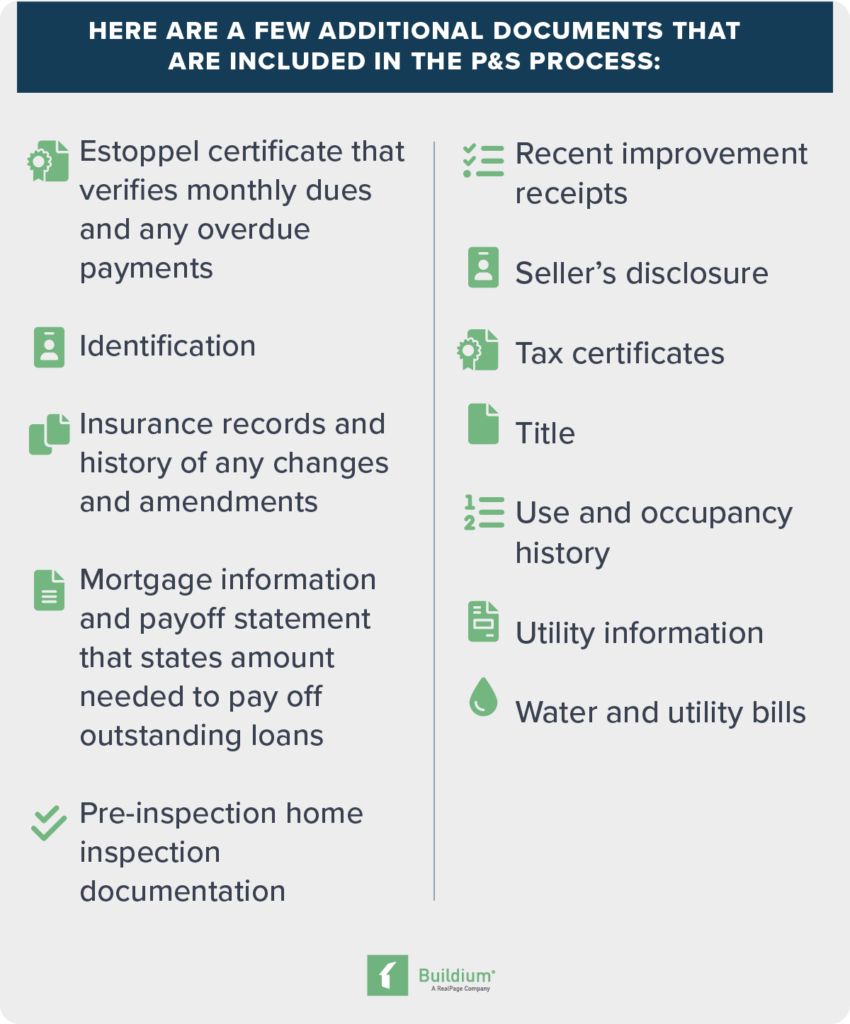
ASSOCIATIONS
HOA real estate purchase & sale documents:
The complete guide
Jon Park | 5 min. read
Published on July 18, 2022
Buying and selling property requires a staggering amount of documents. You’ll need everything from purchase and sale agreements to bank documents and tax certificates.
If the process wasn’t complicated enough, things get even trickier with properties in an HOA. The good news is that the more prepared you are, the faster you can move from listing to close. On the flipside, not preparing in advance will set you back and—worst case scenario—put the deal at risk.
If you’re looking to buy or sell a home in an HOA, you’re joining over 52% of all homeowners in the United States. In fact, a staggering 80.3% of new homes sold in 2020 were part of HOA communities.

In this article, we’ll guide you through all the documents you’ll need when purchasing and selling an HOA property in 2022.
Before we get too deep into the weeds, let’s go through a few key things to know before you start the buying and selling process.
4 things to know before buying property with an HOA
- First things first: HOAs vary from state to state and even property to property. Some are well managed. Others are drowning in debt. Identifying how an HOA is properly run is key to purchasing the right property.
- Even though some may feel the rules and regulations encroach on their liberties, a well-run association provides the framework for a pleasant community living experience. HOA bylaws will outline certain restrictions like what colors you can paint your house, how common areas are utilized, and how public decorations can be displayed.
- New buyers on the market need to be prepared to pay monthly HOA dues. Some HOAs may include homeowner’s insurance and investment in shared public spaces and amenities.
- All of these elements are included the HOA agreement buyers sign before they move in. These agreements are very thorough and may even be 300 pages long. For new buyers, how HOA agreements are organized can provide insight into how your HOA manages their finances and may point out some important red (or green) flags before you pull the trigger.
Things to know before selling property with an HOA
Know the HOA bylaws. Sellers are required to disclose their HOA membership so they can complete the sale while following the HOA’s bylaws. Many HOAs require inspection reports to ensure sold property is up to code. Some states also require homeowner resale packages that contain all the necessary HOA information for buyers.
What is a resale package?
The two primary components of a resale package is the resale certificate and governing documents. Resale certificate are also known as closing statements, estoppel, 3407, 5407, or a paid assessment letter. This includes a history of the seller’s violations, payments, and any unpaid fees upon closing. The governing documents include the deed, articles of incorporation, bylaws, and the HOA’s rules and regulations.
Ultimately, it’s the seller’s responsibility to provide these documents to the buyer. It’s not uncommon for HOAs to charge a fee to transfer HOA paperwork that the seller is responsible for. Some HOAs charge flat fees, running anywhere from $200 to $600.
What documents do you need to buy and sell HOA property?
The first thing new homeowners will need is the HOA’s covenants, conditions, and restrictions, also known as CC&Rs. This should include the expected fees and outline special restrictions, including parking, pets, and rental restrictions.
Sellers must disclose how much HOA fees are, how often they’re paid and how they are paid. Providing the right documentation will help buyers assess how well the HOA is run and, in some cases, if the association is in debt.
Specific types documents you’ll need to provide include:
Disclosure documents that include a copy of the association’s declaration, master deed, and answers to standard commonly asked questions.
Financial documents that show the HOA’s history of increased dues, special projects, and repairs to help buyers analyze risk and if they should expect HOA fees to rise in the future.
A Demand Statement that details any unpaid HOA fees, prior violations, and any fiscal responsibilities tied to the home.
HOA documents are lengthy, and the seller is ultimately responsible for obtaining the necessary paperwork. Most well-run homeowners associations will have the documentation up to date and readily available by using software like HomeWiseDocs. For copies of recent documents, sellers may contact their HOA’s board directly.

Here are a few additional documents that are included in the P&S process:
- Estoppel certificate that verifies monthly dues and any overdue payments
- Identification
- Insurance records and history of any changes and amendments
- Mortgage information and payoff statement that states amount needed to pay off outstanding loans
- Pre-inspection home inspection documentation
- Recent improvement receipts
- Seller’s disclosure
- Tax certificates
- Title
- Use and occupancy history
- Utility information
- Water and utility bills
Closing questions: what else do you need?
Now that you’ve entered the final stages of the sale, there are a few things to keep in mind before you officially sell your home.
You’ll need official legal documents to push the deal over the finish line, like government identification, a copy of all signed and unsigned paperwork, checks for last-minute reallocations, and social security cards.
Here are a few other things you need to keep in mind.
How long do you have to submit P&S documents?
The seller is responsible for having all the documentation listed above on-hand and available when a seller is prepared to make an offer. Typically, it takes up to two weeks for sellers to retrieve the appropriate paperwork from HOAs, so plan ahead.
Laws and regulations around P&S documents vary by state
Some laws are more relaxed than others depending on the state, but a failure to be transparent or follow these rules risks losing the deal completely. HOAs have legal standing to enforce the rules, but ultimately they need to comply with state legislation. We suggest you use a resource like HOPB for more information about HOA laws in your state and speak to a legal professional to fill in any gaps.
Manage all your documents in one place
The more familiar you are with reading and understanding HOA documents, the smoother your purchasing and selling process will be. Having the right strategy—and the tools to complement that strategy—will help you avoid last-minute surprises and make the most of opportunities that come your way.
